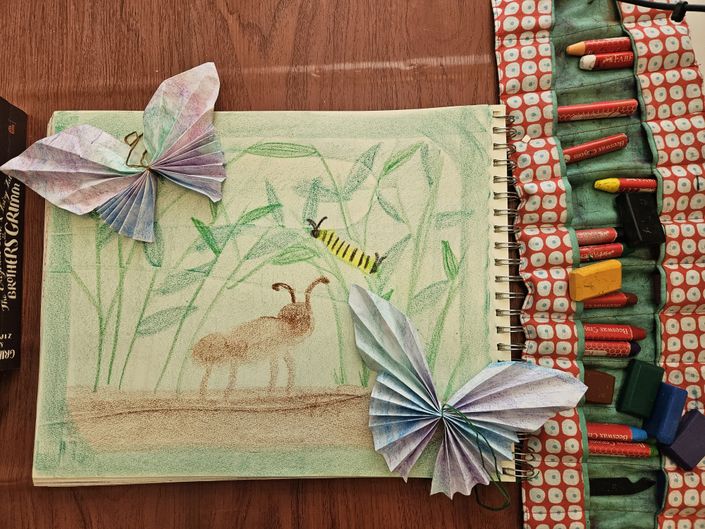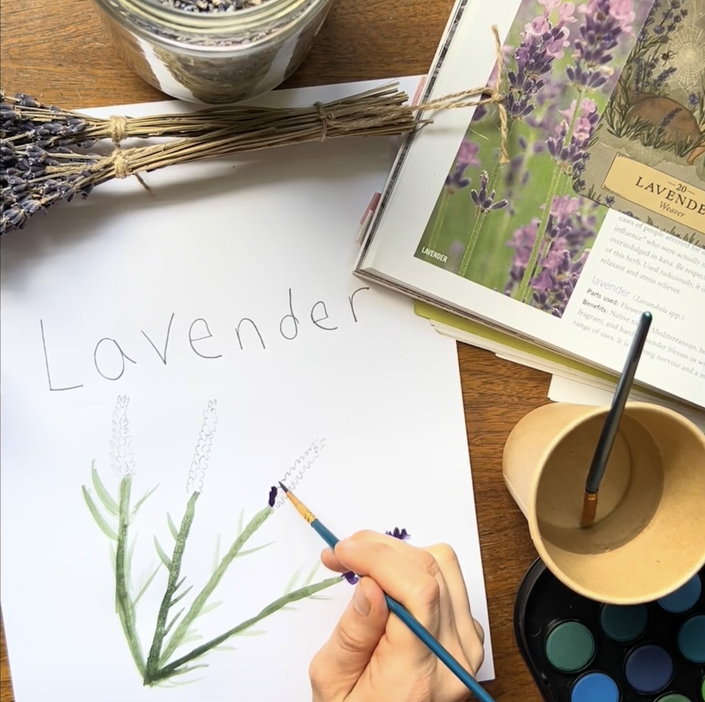Teaching Method
In their first year at school, the children absorb everything in a mood of wonder and empathy. The starting point of foreign language learning is choral speaking and singing, based on imitation. These activities are mostly accompanied by gestures and mimicry. As soon as possible, the children should be given opportunities to speak both in smaller groups and individually. Poetic language rhythm and rhyme - forms one of the two main pillars in language learning. The other pillar is prose, everyday language, which is also cultivated right from the beginning.
Language games feature prominently throughout the Lower School. While participating in these, children are totally dedicated to the actions and the accompanying language activities. By the end of Class 1, the great majority of the children should have mastered what has been dealt with in the course of the school year. This can only be achieved by thorough and frequent revision of what has been introduced and studied so that the children can continually practice anew what they have already learned.
Lesson Content
• Singing-games, all kinds of songs through the seasons and festivals
• Verses and songs involving meaningful actions (e.g. “These are my eyes, and these are my toes …”) Finger-plays
• Acting upon simple commands like, “Sit down”, “Put your hand on your head!” “Get up!”
• Rhythmical and practical counting exercises (cardinal numbers)
• Naming parts of the body; daily activities (eating, washing, dressing, dancing,); basic colors
• Elements of everyday speech that enable the children to participate in simple conversations, and short
dialogues about their family, friends, pets, favorite foods.
• Language games repeating individual structures or items of vocabulary (e.g. “Have you got …?” “Is it … ? what is missing on the table?)
• Listening to simple stories
Attainment Targets
By the end of Class 1, the children’s active vocabulary should include:
• The main colors
• The main objects in the classroom
• Parts of the body
• Days of the week, the months and seasons
• Numbers from 1 to 20
The children should also be able to respond to simple commands and basic questions.
Example Curriculum
Learn More About Ms. Di Pasquali
Angelika Di Pasquali was born and raised in Germany and lived there until 1992. She holds dual citizenship in Germany and Italy and has spent many years living in Italy. She graduated as a Waldorf teacher in Mannheim, Germany, and began her teaching career in Italy in 1992. Angelika taught grades 3, 4, and 5 before leading another class through grades 5 to 8 as their class teacher.
After this, she taught exclusively German in a private high school in Bolzano for over 10 years and offered classes for all levels, including adult evening courses at a training center. At the same time, she studied modern languages at the University of Trento, Italy, and became an examiner for the international Goethe-Institut, certifying students in German studies.
From 2015 to 2018, Angelika was the German teacher at the Spring Valley Waldorf School in Beijing, China, and also taught at Spring Valley’s teacher training center, specializing in Movement, Rhythms, and Bothmer. In 2019, she led a summer camp for the Worldwide Waldorf Summer Camps in Yunnan, China.
Angelika is currently the Class Teacher of Grade 4 at the Freie Waldorfschule Innsbruck in Austria. Thanks to the time difference, she balances her role as a class teacher during the day with her online teaching commitments in the evenings.
Angelika’s greatest passions are watercolor painting and traveling. She looks forward to teaching Class 3 watercolor for Streaming for Humanity and sharing her artistic expertise with a global audience!





